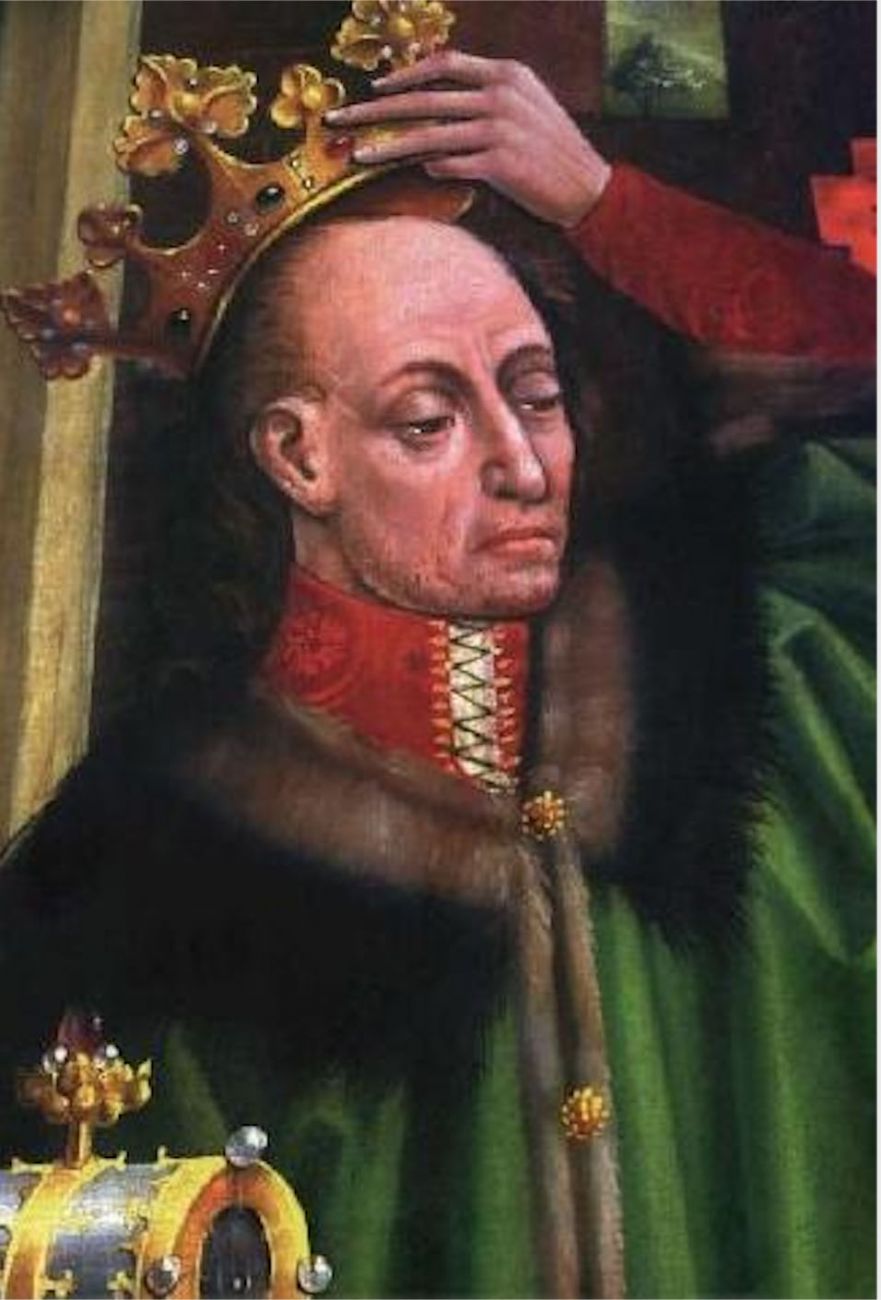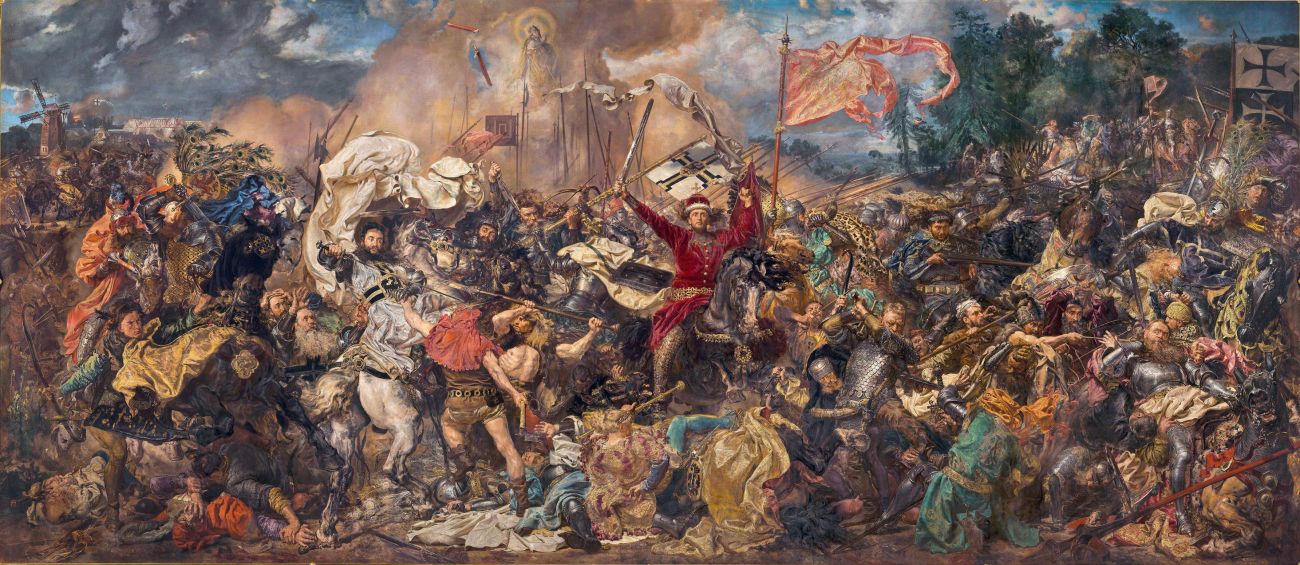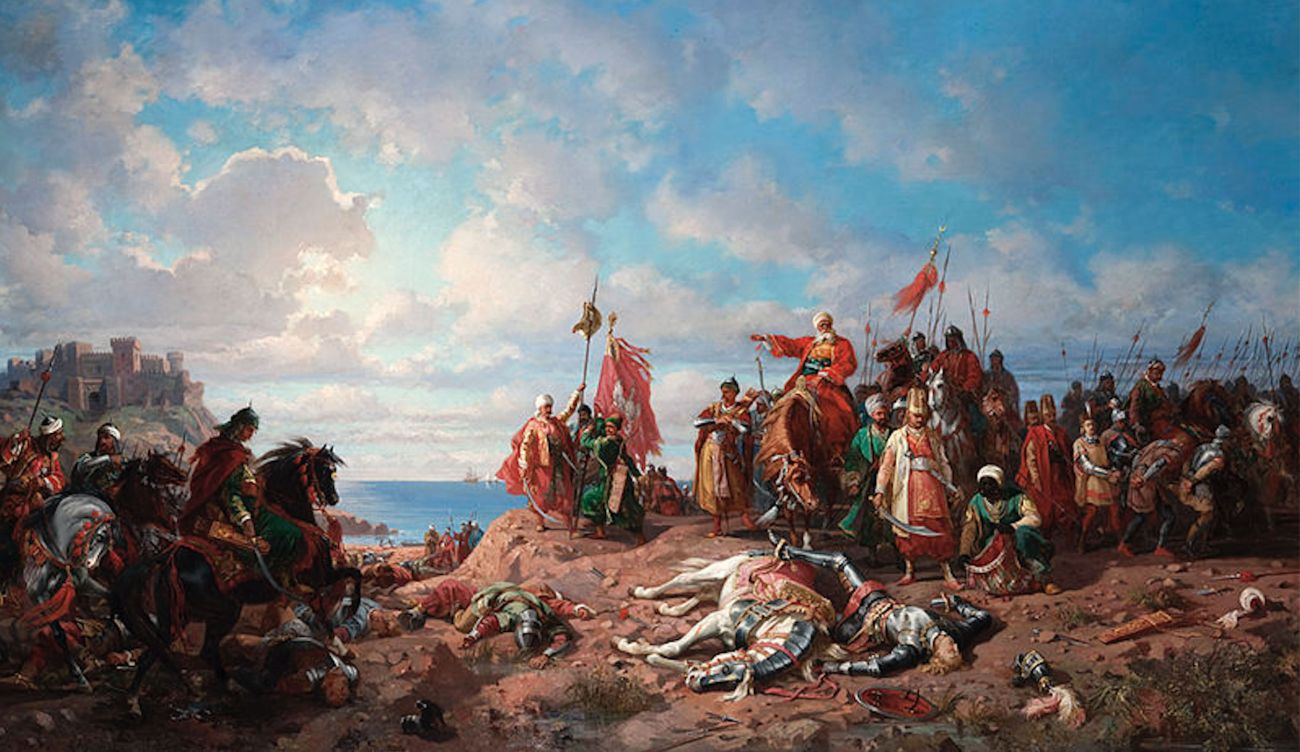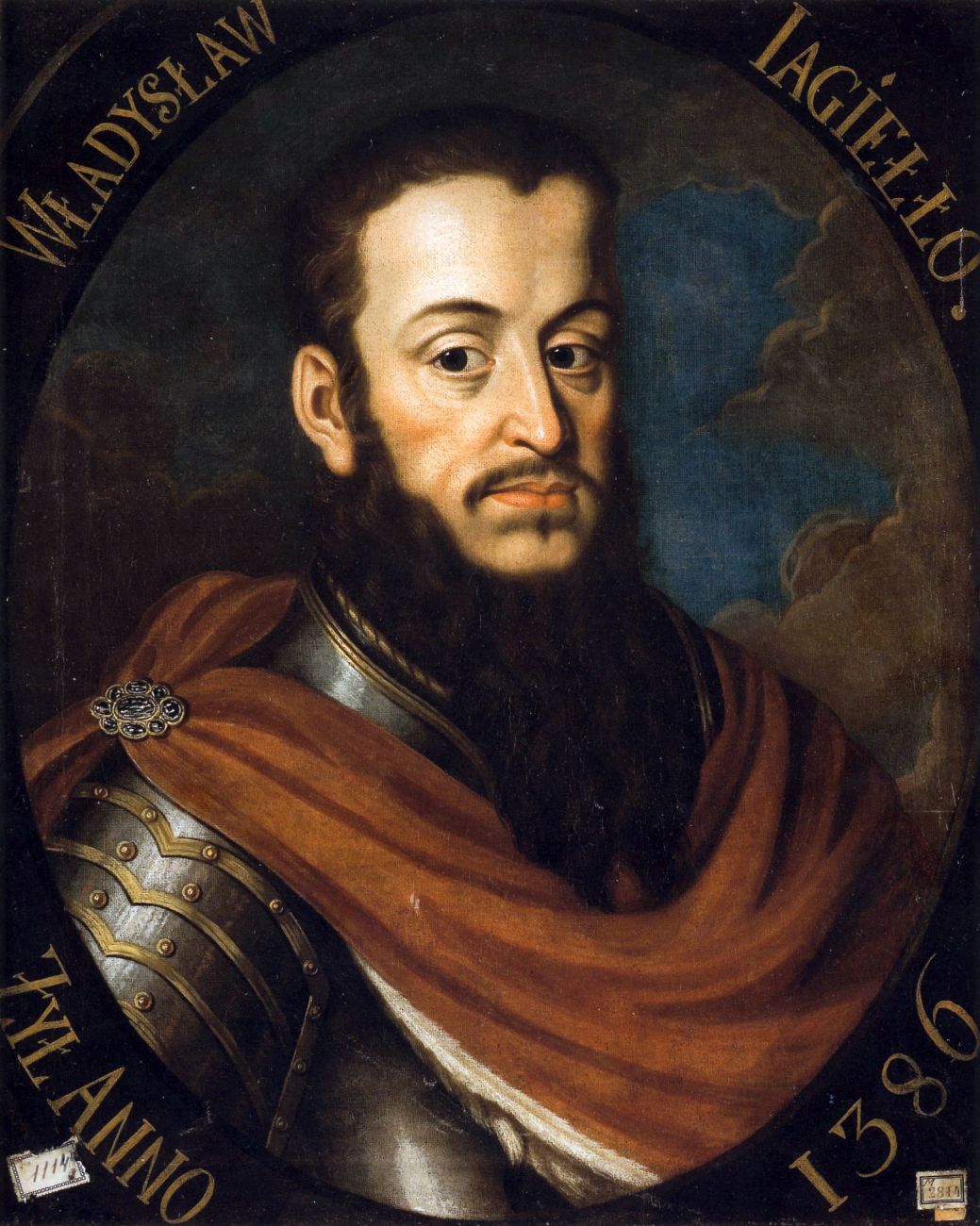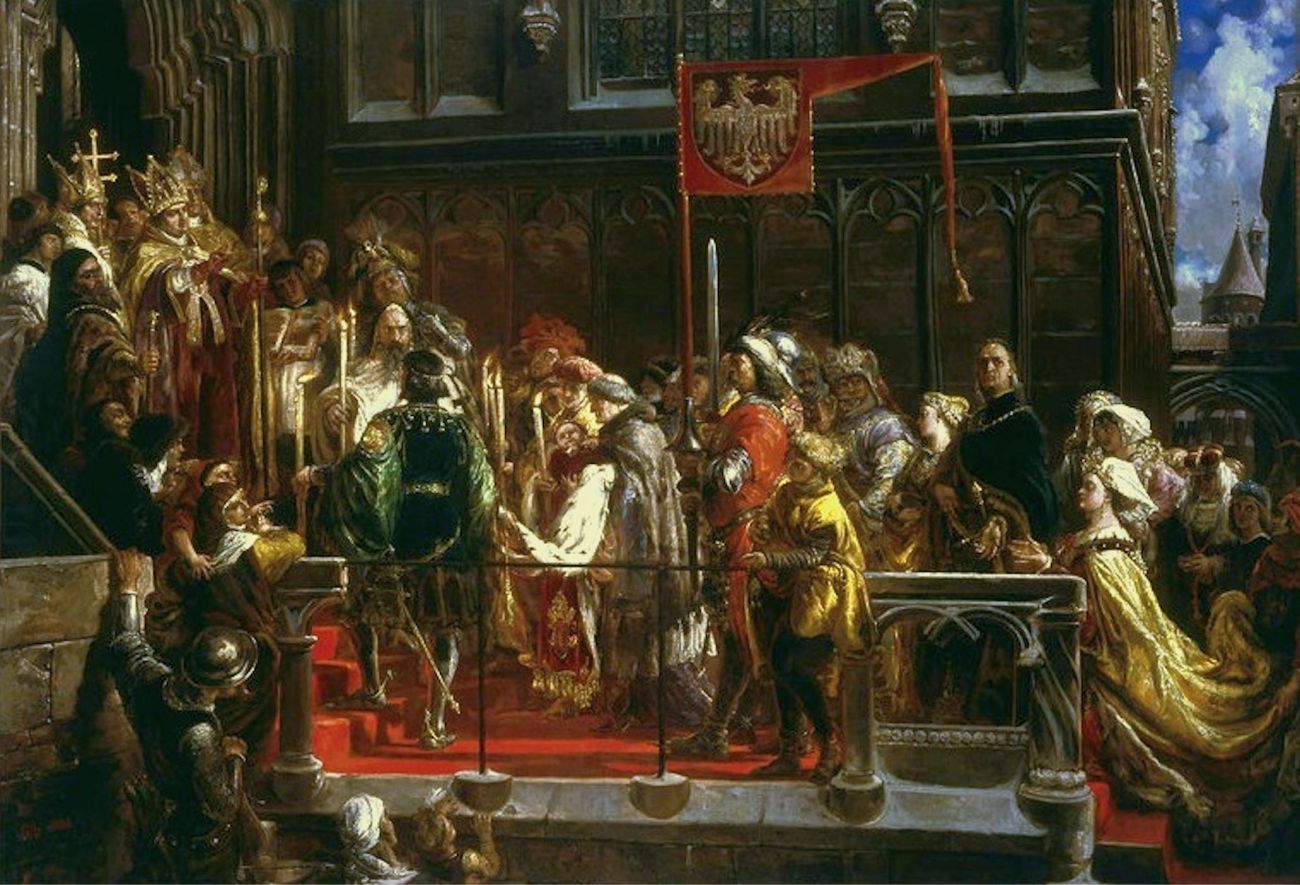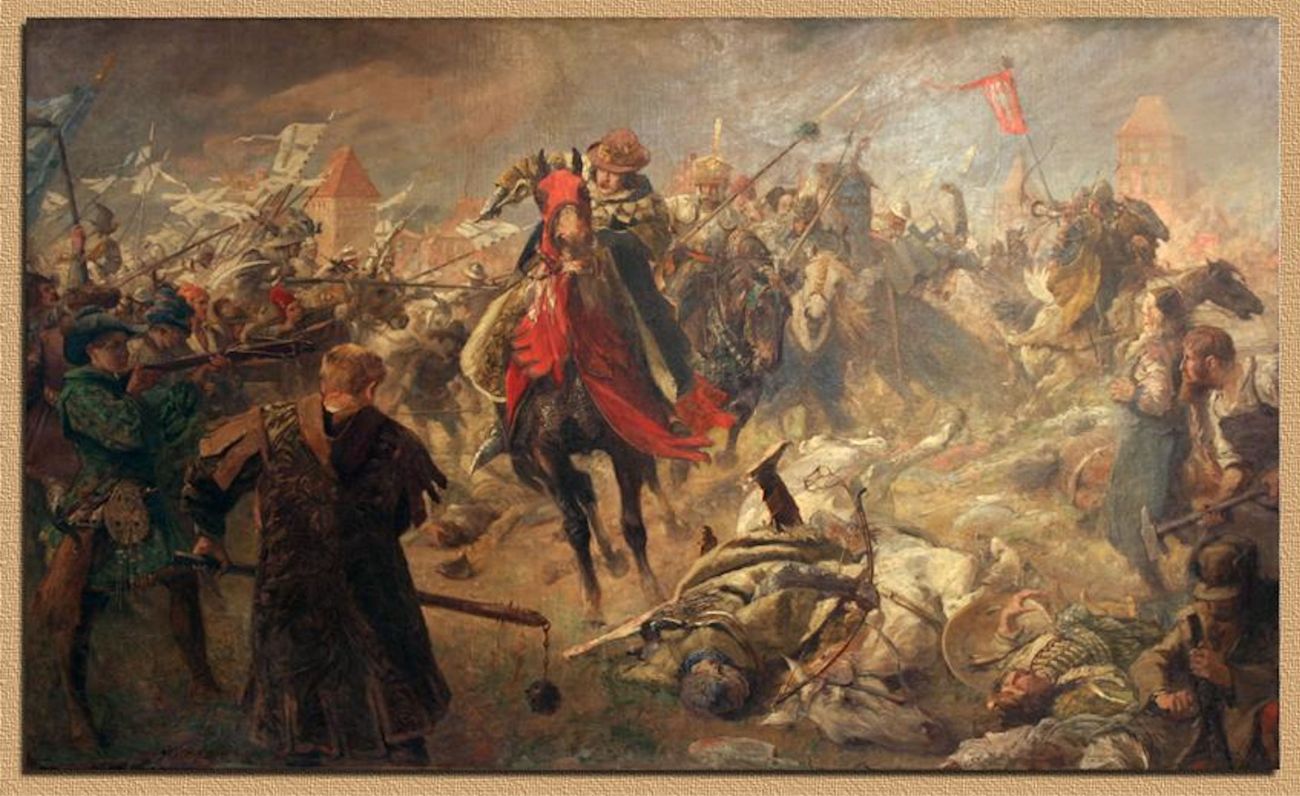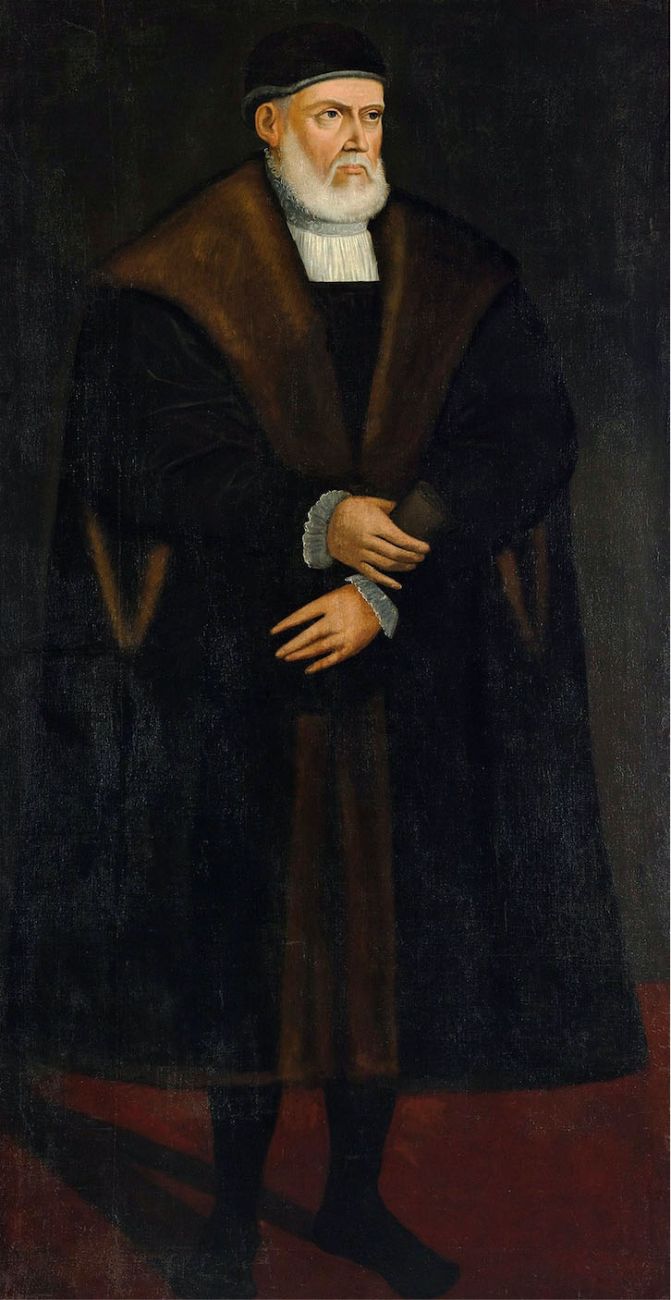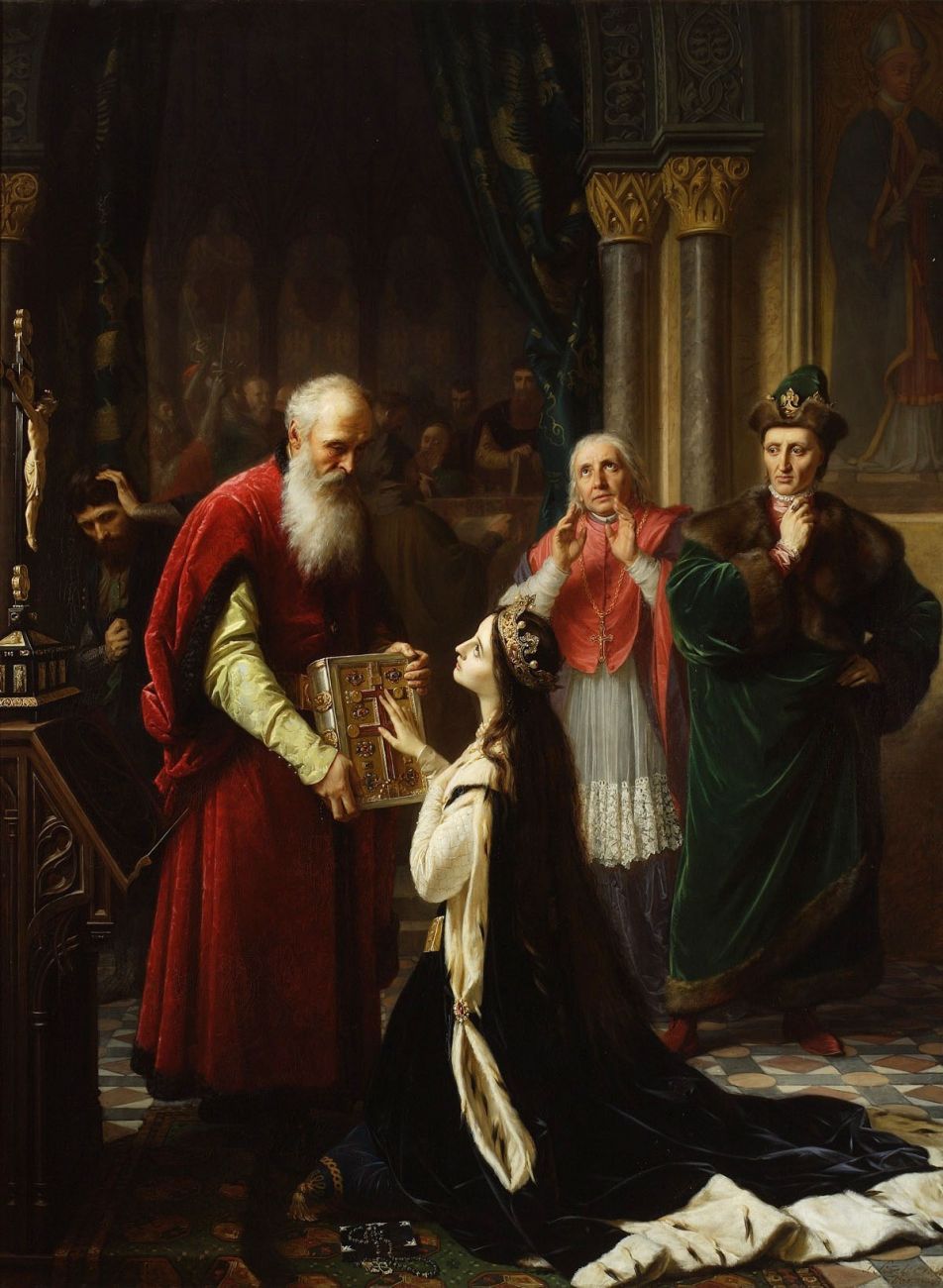
1386 -1572 Jagiellonian Dynasty
The powerful Polish nobility selected Jagiełło, Grand Duke of Lithuania, to be Jadwiga’s husband, which created a link between the two states. Jagiełło was referred to thereafter as King Władysław II. Their marriage was preceded by his baptism, which made Lithuania a Christian state. This relationship between Poland and Lithuania evolved over the centuries eventually creating the “Polish-Lithuanian Commonwealth” in 1569, Europe’s largest state. Proud and confident, the country’s motto was “If God is with us, then who can be against us?”
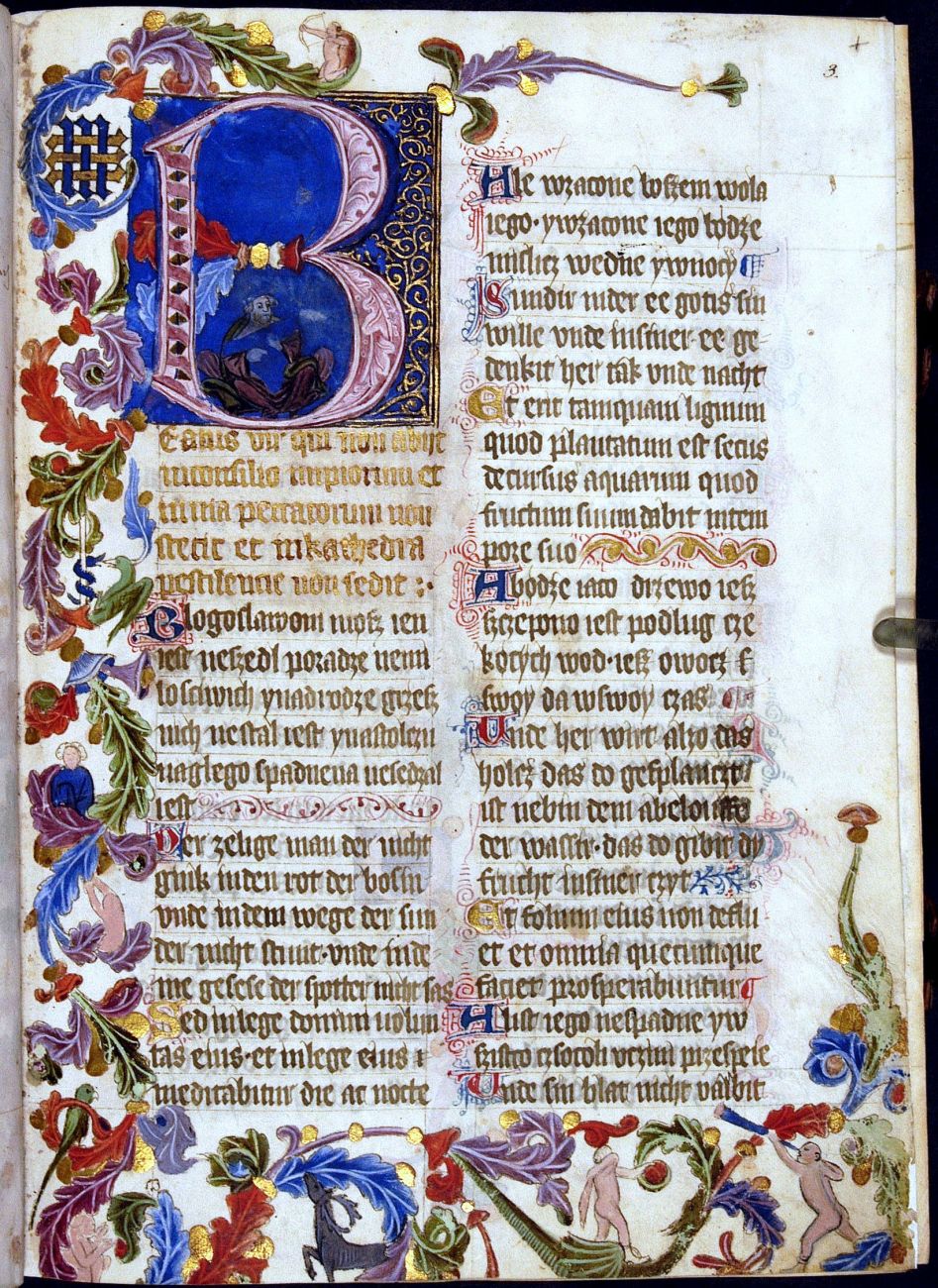
This new era resulted in a series of profound changes making Poland unique in Europe as a Republic or Commonwealth. The monarchs were now elected and had to sign a contract. A powerful parliament, the Sejm, played a decisive role. The nobility, which was a significant portion of the population, was allowed to vote, and religious freedom was legally guaranteed. No dictator arose and power was not centralized. Poland became a major actor on the continent under a liberal system. The Reformation, a movement within Western Christianity in 16th century Europe was a time of religious turmoil that led to warfare among European neighbors. In Poland, religious diversity and policies of religious tolerance, unique in Europe at the time, prevented this from happening in the Commonwealth.
